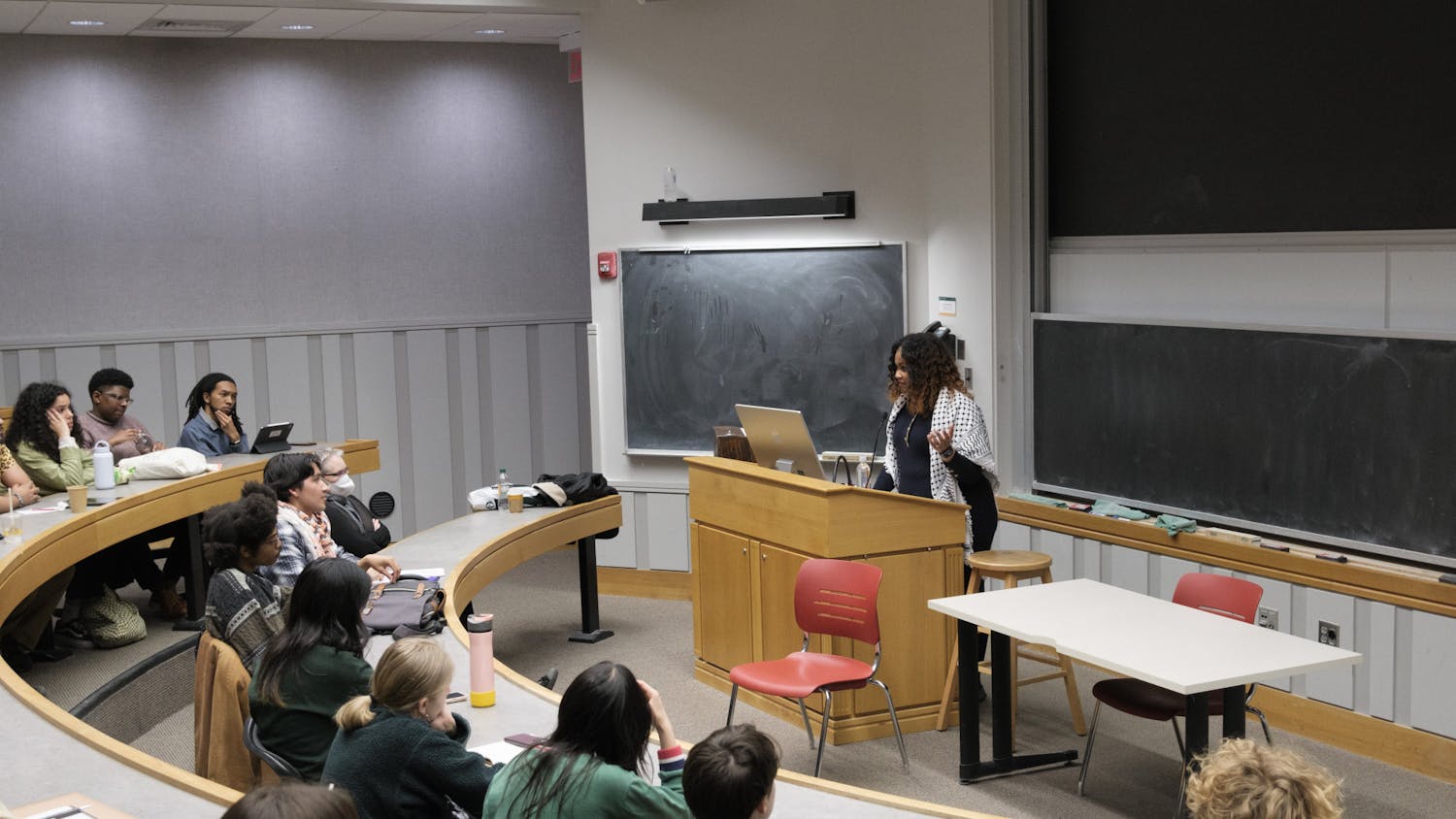As fluctuations in the rank of certain elite schools on U.S. News and World Reports' annual rankings list continue to capture the public's attention -- and even as the debate over such rankings' merits continues to rage -- the significant demands such rankings make on administrators' time go largely unheeded.
But that's the way it should be, according to a number of deans and public relations officers responsible for providing the data used in the rankings, including deans of admissions and directors of public relations from the Thayer School of Engineering, Tuck Business School, Dartmouth Medical School and other Ivy League institutions.
Theirs is a mostly pragmatic approach to the rankings. Answering the many surveys that flood their desks may be time consuming, they said, but it is also part of their job -- necessary if they want their schools to receive the ratings they deserve.
"If we don't put the time in, the rankings are going to come out anyway and then we would end up placing somewhere where we don't belong," Director of Tuck Public Relations Kim Keating said, a view shared by representatives of many in a similar position.
But some of the requested information is subjective rather than purely numerical, and therefore takes more time and thought than simply plugging in numbers and percentages.
Deans of admissions are often asked to rate several hundred other schools based on academic reputation. This can be time consuming, not to mention inaccurate, Thayer Dean of Admissions Lewis Duncan said.
"A lot of the people who rank the schools rank based on something besides personal knowledge of the program," Duncan said. He cited a story that "circulates among deans" in which MIT ranked in the U.S. News and World Report's top-10 petroleum engineering programs, even though such a program does not even exist at MIT.
Not only have schools come to accept rankings like U.S. News and World Report's as a permanent fixture in the higher education admissions process, but schools trust their own numbers and welcome the chance to portray themselves in a positive light.
"If surveys are being conducted, then it's important to make sure that the information about us that's being printed is accurate," said Judith Montminy, a Harvard Public Relations officer.
In addition to U.S. News and World Report -- still the holy grail of college rankings, administrators said -- admissions and public relations offices receive an array of other ranking data sheets and surveys, which they consider with varying seriousness.
Keating said that her office receives over 30 surveys a year and makes every effort to fill them out conscientiously.
DMS Director of Communication Hali Wickner echoed Keating.
"My job as communications officer is to provide information and make it easier for them -- most PR officers consider it part of their role to get the information out," Wickner said.
In a recent article in The Economist, Dean of the Tuck School Paul Danos lamented the amount of time he spends overseeing the process of responding to the thirty plus questionnaires he receives annually, though he noted that rankings can be valuable in making schools pay attention to factors students find important.
In contrast to Tuck, Wickner said that DMS does not receive anywhere close to 30 major surveys annually, partly because organizations often collect their rankings from a database of statistics compiled by the Association of American Medical Colleges.
Since medical schools are compelled to collect and submit the information annually for AAMC, DMS has fact sheets on hand for any other organization that requests information, Wickner said.
Administrators from Harvard Medical School said they receive only about a half dozen requests a year because of the AAMC database. But despite the relatively small number of surveys and questionnaires they receive, HMS does not view rankings as crucial to publicizing the school. This proved a stark contrast to other public relations officers who cited rankings as an important way to make an institution's name known around the world.
"Our dean can't make it to every country in the world, so having these rankings is letting people internationally see that we have a great program here," Keating said.
But in some cases, it is more amateur studies -- not mainstream, professional rankings -- that prove a major headache for administrators.
"The professional rankings don't take more than half an hour," Duncan said. "The ones that are hard to justify the time for are the half dozen times a year I get a request from some grad student who's doing a study of engineering schools and wants me to spend several hours filling out a detailed questionnaire."



